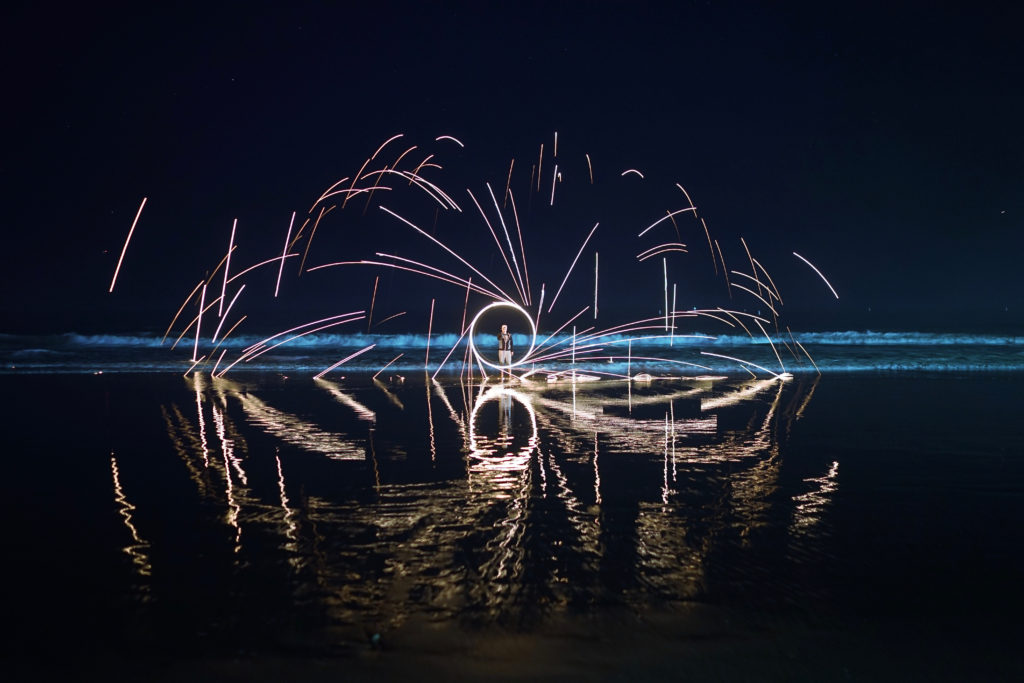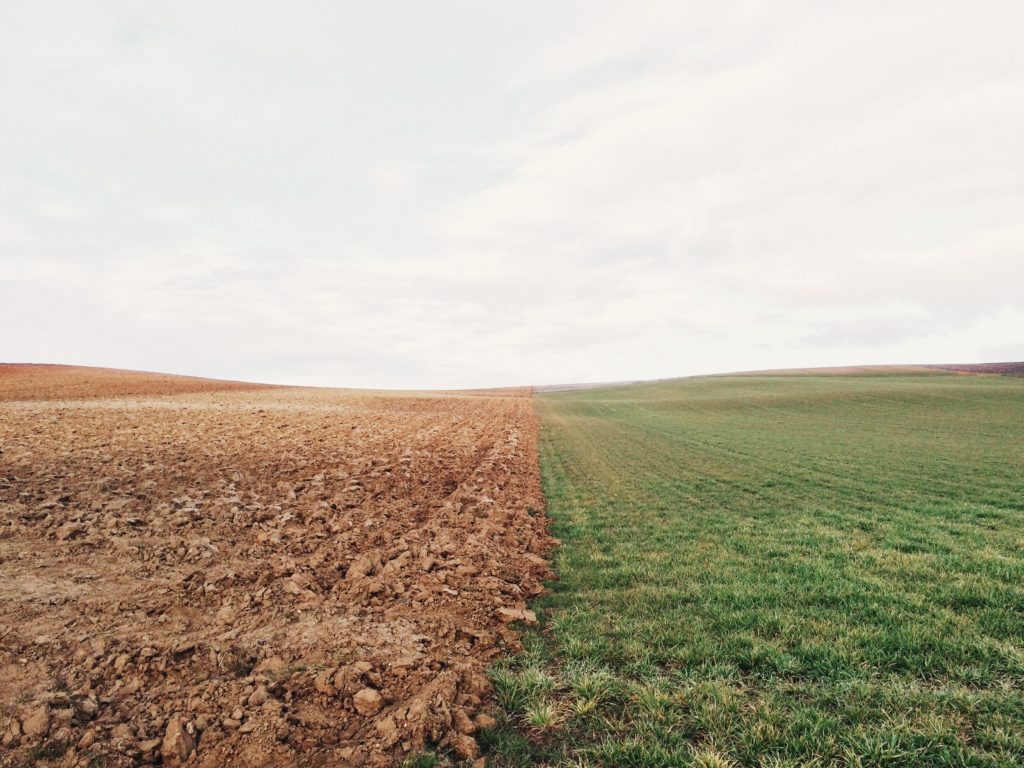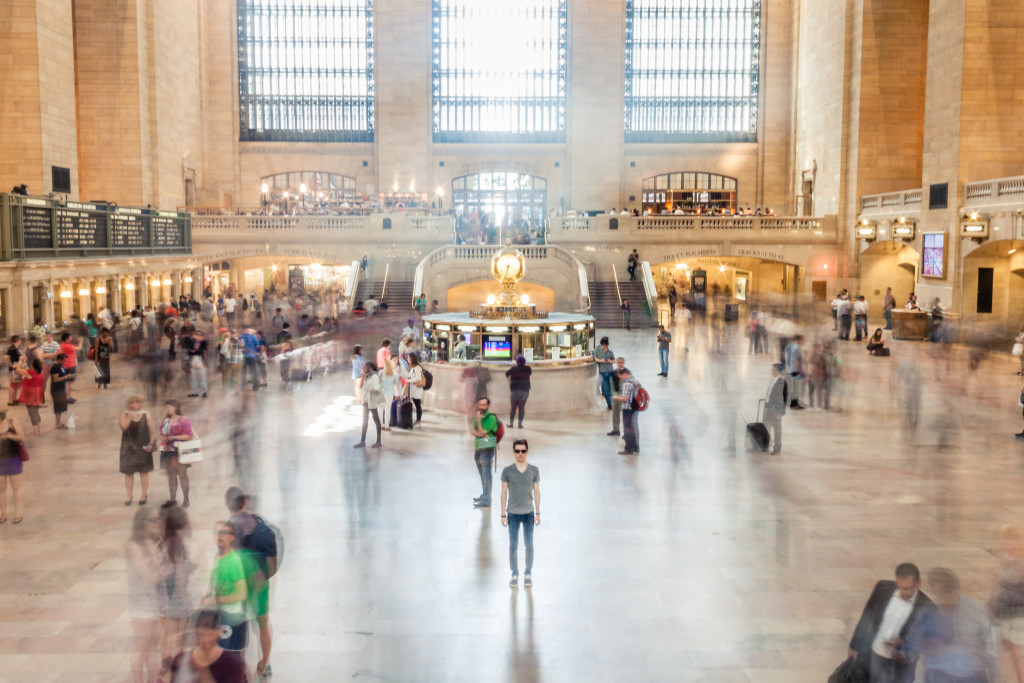In the wake of the events of Charlottesville, many friends have posted about punching Nazis in the face and inevitably someone makes a comment about nonviolence and promoting peace. They talk about how punching a Nazi in the face is incendiary, particularly if the neo-Nazi merely gathered together with other neo-Nazis in protest. I won’t get into the issues of hate speech and incitement here, but would rather like to talk about this nonviolence thing.
In yogic philosophy, nonviolence is called ahimsa. Most people incorrectly assume ahimsa means never using force ever. But in truth, the act of living is a violent one. Every time we breathe, we kill organisms. Every time we filter water, we kill something. Life is violence and I see in our country a tendency to disown violence and project it outward.

There’s a grip and a force to life, like a lizard’s foot. Photo by Katarzyna Urbanek on Unsplash.
We are a country that extols the likes of Gandhi and Martin Luther King for their peaceful protest tactics, yet we spend more on our defense budget than any other country in the world. We talk about the importance of peace in matters of civil unrest, yet we invade other countries to help them overthrow governments. We are constantly on the lookout for terrorism, quick to profile people who are not White and not Christian, yet we ignore terrorism on our own soil. Yo, something is not right here. How can we be a nation of such extremes?
I’m not an expert, I’m just another person on the internet, but I’m pretty sure we as a country are refusing to acknowledge the beast within us. We want someone else to do our fighting, yet we’re attracted to violent movies, television, and books because there’s something we like about violence. We want to believe peace is the path forward because it paints a nicer picture, but in truth, more revolutions are violent than they are peaceful. It’s rare for pleading and supplication to change the mind of an oppressor.
I’m not saying we should all walk around throwing punches at every person who looks at us funny, but force is sometimes necessary. On a personal level, anyone who wants to take away your property, your spouse, comes with a weapon to murder you, wants to snatch away your wealth, set fire to your house, or wants to take your life by administering poison, use force on them. Your life is just as important as theirs.
My spiritual teacher says, “The use of force against an aggressor is valor and desisting from such use of force is cowardice. But the weak people must assess their strength before indulging in violent conflict with a powerful aggressor; otherwise, if a fight is started without acquiring proper strength, injustice may temporarily triumph.” He also said, “Of course, if you find that the aggressor is bent on destroying you, whether you use force or not, it would be proper to die at least giving a blow to the best of your might without waiting to assemble the adequate forces.”
I’d like to believe my spiritual teacher dispenses this advice because he wants us to know our lives are worth fighting for, literally. We are all worthy and deserving of respect and that means not taking abuse from anyone, whether individually or as a group.
I dream of a world where we recognize sometimes the use of force is necessary. A world where we understand there exists within each of us a warrior-self that’s appropriate to use when the case calls for it. A world where we understand the real meaning of nonviolence.
Another world is not only possible, it’s probable.
This weekend I saw Wonder Woman and loved it. Something about watching a female superhero really got to me in a way I didn’t expect. I started tearing up. As I teared up, I was reminded this has been a long time coming. Not only the movie, which it has, but more importantly, equality for women, which we’re still working on.
Last year I would have told you things aren’t perfect, but we as a society have progressed far in terms of equal rights for women. This year I can say that statement is both true and not true. It’s true women no longer need a husband to open up a credit card account (which wasn’t the case until 1974, by the way), but at the same time, we also earn less than men. And the amount is far less for women of color. Also, I can’t pretend women are treated fairly in the U.S. when our current president was recorded as saying as a star, he can do anything, he can grab women by the pussy. Neither can I pretend women are treated fairly in the U.S. when the penalty for sexual assault is so lenient. It’s obvious many in power think of women as inferior beings.
At the same time, I have to admit not everyone in power thinks of women as inferior, and we have more women in positions of power not only in politics, such as Prime Minister Theresa May and Angela Merkel, but business as well, such as Sheryl Sandberg and Arianna Huffington. What I find baffling is what many don’t seem to grasp, is the better life is for women, the better life is for everyone. I don’t mean that in the sense, “Happy wife, happy life.” I mean, when women are educated, society flourishes.
My spiritual teacher says, “Ideally, women should also move with their own strength and with the same speed as their male counterparts. In the process of movement, if they feel pain in their legs, if they fall on their faces, they should be physically lifted up. The fact is that we must move together in unison with all.” Moving together in unison with all means we all go far. If men are allowed to dominate and demean, we as a society are like a bird flying with one wing.
Don’t get me wrong, I’m not saying women should have equal rights only because it means we all benefit. All human beings should have equal rights. I don’t understand why it’s even a question. My teacher also says, “Women should have as much unbarred liberty to enjoy the light, air, earth, and water like children of nature as men have. In fact, it is not a case of granting rights to women, it is a case of recognizing their rights.”
We already have rights that are not recognized. What will it take for those rights to be recognized? I’m not sure, but I am confident the old ways of thinking will crumble into dust. Just as the Wonder Woman movie was finally made, eventually all women will have equal rights. It will take time, but it will happen. One more quote to end on: “Let women be the vanguard of a new revolution which humanity must achieve for a glorious tomorrow.”
I dream of a world where women lead a revolution that achieves a glorious tomorrow. A world where women’s inherent rights are recognized. A world where all women everywhere shake off the slumber of dogma and inferiority, breaking the shackles that chain them. A world where women wake up to the true magnificence of who they are.
Another world is not only possible, it’s probable.
The other week I posted a news story on facebook with commentary that I have compassion for robbers and the robbed, and was met with so much vitriol it astounded me. People I didn’t know called me a moron (and worse), told me to get off of facebook, etc. What I heard over and over again was, “I’m poor and I’ve never robbed anyone.” That’s great! I’m glad there are poor people that don’t rob others. Keep not robbing.
What strikes me is how me-centered that viewpoint is. There is an inherent expectation that we all act a certain way, but guess what? We don’t. And placing so much onus on the individual doesn’t work. I’m reminded here of the recently passed healthcare bill in the House of Representatives. The terms of the bill are ludicrous in my opinion. “Have you ever been sick? Are you a woman? So sorry, no healthcare insurance for you or you’ll have to pay staggering premiums. Good luck with that.”
Indian philosopher and economist P.R. Sarkar said, “Rich people do not want to consider the needs of the poor, because if they do, they will have to make some sacrifices. Where will their luxuries and comforts come from if hunger does not burn the bellies of the poor?” Our capitalistic society encourages this mindset, encourages us to look out only for ourselves, and try to scramble to the top of the heap by declaring, “I worked hard for this so I earned it!” Yes, but that means the suffering of others continues. It’s easy to dismiss, to say the people in that position just didn’t work hard enough, or try hard enough, or act the right way, or whatever. There are a thousand excuses we could give.
Sarkar said, “[T]o admit that these sufferings are the result of social injustices implies that everyone is responsible.” And that’s the thing, we are all responsible. We are all responsible for each other. The human family includes everyone. I’ve quoted this African proverb before, but it’s pertinent so I’m quoting it again: “If you want to go fast, go alone. If you want to go far, go together.”
I want to go far. I long to go far. How do we do that? What can little ole me do from her apartment here in California? It sounds cheesy as all get out, but one of the answers is love. I’ll close with another quote from Sarkar:
Like any other problem, great or small, there is only one way to solve economic problems, and that is through genuine love for humanity. This love will give people guidance; it will show them what to do and what not to do. It is not necessary to study great numbers of books or to rely upon those who speculate with the future of the silent masses. The only essential requirement is to look upon humanity with genuine sympathy.
I may not be a politician, I may not be an economist or a philanthropist or a CEO, but I sure as heck can love humanity. I can have compassion and sympathy and empathy for those around me. I can keep loving people even through their missteps. I can keep spreading love and embodying love and talking about love even when people call me foolish. And I will.
I dream of a world where a genuine love for humanity is awakened in all of us. A world where we all look out for each other. A world where we understand our progress is linked to those around us. A world where we understand the human family includes everyone and we act accordingly.
Another world is not only possible, it’s probable.
Maybe I’m off base, but it seems to me in the West there’s a notion spirituality is for the privileged. For people who don’t have to worry so much about the mundane necessities of life. For people who have time and space to contemplate why they’re here and what their purpose is. But that’s not true; spirituality is for all. It’s everyone’s birthright.
I understand why someone would tell me otherwise, because when you don’t have a place to live, it’s hard to ruminate on the sacred. I’m nothing if not practical. Our basic needs must be met, yet at the same time we keep chasing after the next thing and then the next. If not something we desire, then something we have to get done. However, there’s always something on the to-do list. When does it end?
Paraphrasing my spiritual teacher, there is in the living being a thirst for limitlessness. Knowingly or unknowingly, human beings are running after limitlessness. However, it is not possible for limited objects to quench one’s thirst. That means it doesn’t matter how much money I have or how good I look in a bathing suit or who is by my side. There will always be a longing and a yearning for something more, something greater.
That longing, that yearning, is not confined to a privileged few. Nor is it a luxury. From my perspective, it’s not a luxury because without it, we have people and leaders who are interested only in satisfying their own desires. Without it, we have people who feel separate from each other and treat each other as such. Without it, the environment becomes a resource we pillage instead of a sacred entity.
Look, I realize all the world’s problems can’t be solved by meditating. We are human beings living in a world of matter. That means action is necessary. Meditating on ending world hunger doesn’t end world hunger. But how do you convince people ending world hunger is a good idea? In my mind, that comes from spirituality. From opening up their hearts. The meditation I practice connects me to all living beings and doing so means I’m not OK with them coming to harm. I recognize myself in others as opposed to seeing them as strangers, and that comes directly from my spiritual practice.
Spirituality is the great equalizer because it’s a reminder we all want the same things and we all belong to each other. It’s a reminder we’re all in this together. Not only that, spirituality is the only thing that will satisfy our ultimate longing because material goods never will. That’s true not only for some, but for all.
I dream of a world where we realize what we hunger for exists on the spiritual plane. A world where we realize we all want the same things. A world where we view spirituality as a necessity rather than a luxury because we are all striving for eternal bliss.
Another world is not only possible, it’s probable.
There’s a lot of talk recently about how Americans are uninformed, uneducated, etc. I’ve seen quote after quote about how we need to fix our education system so that tyrants are not believed and do not come into power. However, as someone who has a college degree, I do not consider myself to be uneducated, yet I’m still taken in by high-minded speeches. I am easily swept away by rhetoric, especially if the person is addressing a pain point.
I read an article recently about why poor whites chant “Trump, Trump,” and the author said it’s for so many reasons, but one of them is Trump speaks to the frustration of poor whites. Of people who feel like the government doesn’t care about them. The author said, “Trump supporters believe he’s different. They believe that he cares about us [poor white people], that he tells it like it is, that he gives us a voice, that he can’t be bought because he’s already rich, that he’s railing against politics as usual.”
Related, I read another article about the historical perspective of what will happen next with Brexit and Trump. Tobias Stone said, “Lead people to feel they have lost control of their country and destiny, [and] people look for scapegoats, a charismatic leader captures the popular mood, and singles out that scapegoat. He talks in rhetoric that has no detail, and drums up anger and hatred. Soon the masses start to move as one, without any logic driving their actions, and the whole becomes unstoppable.”
The part that stands out to me is “rhetoric that has no detail.” I think it’s crucial not that we become more educated, but that we become more discerning. To ask ourselves, “OK, you promise to make America great again, but how and at what cost?” It is so easy to get swept away by something because it sounds good. It’s much harder to use our brains to dig in and figure out the details. I say this as someone who struggles with discernment herself. I can’t tell you how many books I’ve purchased because the author proclaimed they had all the answers and could help me live the life of my dreams.
My spiritual teacher is a big advocate of discernment or discrimination. He says it is only through discrimination the mind can determine the goodness or evil in a thing or in its uses. And also that proper questioning is vital. Proper questioning is “asking questions to the right people who will provide appropriate answers to help one solve any problem one may encounter.”
I appreciate that he says the right people. That means I need to ask questions of people who know more than me, someone more experienced. An expert if you will, not someone who sounds like they know what they’re talking about but is actually full of crap.
What I’m advocating here is not that we become more educated, more informed, but rather that we approach things with a healthy degree of skepticism. That we ask ourselves, “How do I know this is true?” instead of assuming automatically it is. Does this post sound preachy? If so, it’s because I’m gunning for our future. When we stop discerning, that’s when despots rise to power and very few people benefit in that instance.
I dream of a world where we practice discernment. A world where we ask how we know something is true instead of automatically buying it hook, line, and sinker. A world where we understand using our brains not only benefits us, but the entire society. A world where we realize discernment is crucial.
Another world is not only possible, it’s probable.
Last week, I watched an inspirational movie about kids who utilized their talents to win scholarships to college and pull themselves out of poverty. All of the kids were the first in their families to go to college, and by doing so they become teachers, writers, policemen, etc. They weren’t forced to work in low-wage jobs like their parents were.
I teared up watching the flick – I love that they improved their lives – but then I got to thinking, “What about everyone else?” What about the kids who don’t have an exceptional talent that wins them a scholarship? These kids escaped the cycle of poverty, but someone else is waiting in the wings to take their place. Just because one person no longer has to pick oranges for a living doesn’t mean oranges stop getting picked. It doesn’t mean all the other orange pickers no longer have to endure poor working conditions and low wages.
The cycle of exploitation continues and our capitalistic economy feeds off it. In the case of food production, almost literally. Why is this? Because we continue to emphasis the rights of individuals (or corporations, who are now considered people) over the collective.
I’ve seen the individual versus the collective show up in a big way this week with the killing of Cecil the Lion. Minnesotan dentist Walter Palmer paid $50,000 to hunt Cecil the Lion, who was a big tourist attraction in Zimbabwe. Did Palmer think about anyone other than himself when he set out to kill Cecil? No he did not. He was prioritizing his own selfish interests.
Another way that the individual versus the collective is prioritized is the public’s reaction to the killing of Cecil. We’re directing so much ire against Palmer, but not talking as much about poaching laws in general. Outrage has reached such a fever pitch that Zimbabwe is calling for Palmer’s extradition and many people in the U.S. agree. I think part of the reason we’re seeing so much outrage over Cecil is it’s easy to excoriate an individual.
A few of my friends who are more focused on the collective have exclaimed they wish society would be as outraged over the killing of black people in our country as people are over the killing of Cecil. It’s harder to evoke as much outrage against a system, which is also harder to dismantle, than it is to get pissed off an at individual. Racism is so rampant, it’s seeped into many aspects of life, and how do you go about changing something like that?
I think it starts with prioritizing the collective. There is an African proverb that says, “If you want to go fast, go alone. If you want to go far, go together.” We are not going to go far if we keep focusing on ourselves alone. We are not going to solve any of our serious societal problems if we’re thinking, “How can I benefit?” instead of “How can we benefit?” Life can be better for all of us but that starts with striking a balance between the individual and the collective.
My spiritual teacher says, “One must not forget that collective welfare lies in individuals and individual welfare lies in collectivity. Without ensuring individual comforts through the proper provision of food, light, air, accommodation, and medical treatment, the welfare of the collective body can never be achieved. One will have to promote individual welfare motivated by the spirit of promoting collective welfare.”
I dream of a world where we go far, together. A world where we prioritize taking care of each other. A world where we understand what’s good for the collective is also good for the individual. A world where we work to raise each other up, and improve life for us all, because after all, you plus me equals we.
Another world is not only possible, it’s probable.
- « Previous
- 1
- …
- 5
- 6
- 7




